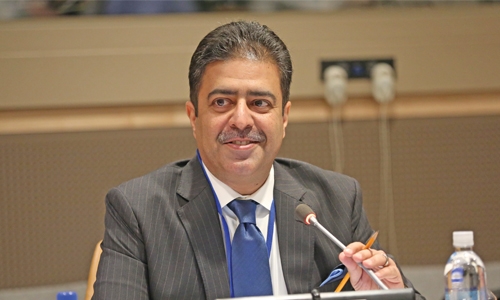Flexi Permit system presented at UN
Manama : The Flexi Permit, a Labour Market Regulatory Authority (LMRA) initiative allowing foreign workers to sponsor themselves, was highlighted at a United Nations forum yesterday. During the forum organized in cooperation with the International Organization for Migration, the Bahraini delegation represented by the LMRA CEO, Ausamah Abdulla Al Absi, presented the pioneering initiative.
The Flexi Permit reflects Bahrain’s long-standing commitment to increasing its international and regional competitiveness by strengthening the role of the private sector, the LMRA CEO said.
The much-lauded two-year permit enables expatriates to work for multiple employers on a full time or part time basis, provided the job does not require a professional license to be exercised.
The eligible permit-holder is liable to pay BD 200 as work visa fee and BD 144 towards healthcare with a monthly payment of BD 30.
Following its launch July 2016, the LMRA received an average of around 50 expats every day with over 2,000 expatriate workers becoming legal residents as of January 2018.
Ausamah Abdulla Al Absi added that the Flexi Permit enables the Kingdom to capitalise on available opportunities at low-cost and within existing legal frameworks, all while improving employment conditions for Bahrain’s irregular or temporary workforce.
Over 48,000 permits are expected to be issued within two years as part of the pilot project, the first of its kind in the Middle East.
In September 2017, the LMRA extended the eligibility of Flexi Permits to expatriates who are not in possession of their passports, provided the passport has a six month validity.
The permit, a blue card carrying basic information and photograph of the permit holder, will considerably reduce illegal practices in the labor sector.
The permit has been adopted as a best practice example of effective management of migrant labor markets at the UN Economic and Social Commission for Western Asia (ESCWA).
Related Posts

